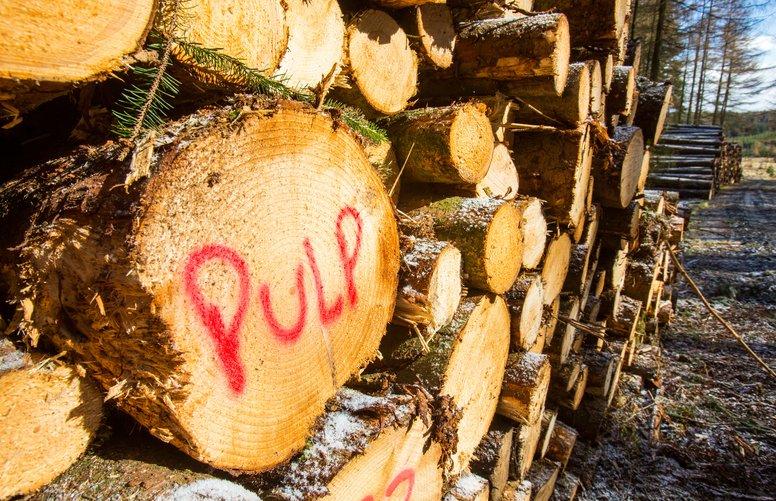How worried should the paper industry be about the impact of war in Ukraine on the timber market?
Current events in eastern Europe have thrown global trade into disarray – and the paper industry needs to be ready for direct impacts.
A new analysis has made clear how the devastating war in Ukraine is set to disrupt the timber and paper industries. While the exact implications of interruptions to timber exports remains uncertain, a tightening of the lumber market is seen as inevitable in both the short and long term – directly impacting industries such as paper that utilise softwood lumber by-products. This comes alongside other knock-on effects from the conflict for businesses to deal with, such as higher energy costs.
According to the report released at the end of April by Wood Resources International (WRI), the conflict is already having an effect on global timber markets. Russia, Belarus and Ukraine accounted for 25% of the global lumber trade last year. Since the war began in February, there has been a “dramatic reduction” in forest products exported.
Pre-war, the three countries supplied almost 10% of Europe’s softwood lumber – a level that amounted to 8.5 million cubic metres in 2021, according to WRI. However, economic sanctions on Russia and Belarus by the majority of countries in Europe alongside disruption to the forest industry in war-torn Ukraine has seen those lumber exports dry up.

To help mitigate these shortfalls, at least in the short term, WRI suggests that European timber suppliers could halt some exports, steering shipments into the European market. This, though, could have a knock-on effect in other markets: the US, for example, imports a very small amount of timber from Russia, but relies on Europe for 3.2% of its lumber needs. Those imports could be at risk if European suppliers choose to prioritise domestic markets.
In the longer term, lumber companies may need to invest in new production capacity – though WRI reports that log supply in Europe is already tight. Some countries, such as Finland, are already looking at other options. Finns import 10% of their wood from Russia, but are now looking at substituting this from domestic logging and imports from the Baltic states.
It’s also worth noting that both the FSC and PEFC have withdrawn their accreditations to Russia and Belarus – meaning that any timber from those countries that might find its way into unsanctioned markets won’t be certified.
In terms of the import/export of paper products themselves, the effects of the conflict may not be as severe. Russia is a source of paper products for the EU such as kraftliner, newsprint and uncoated woodfree, meaning sanctions are likely to lead to some short-term shortages in these sectors. However, Alejandro Mata, director of European packaging and graphic paper at Fastmarkets, believes that capacity increases scheduled to come online in Europe and Brazil should be enough to cushion the shortfall.
The greatest impact to the European pulp and paper industry, according to Mata, is coming from energy price inflation. Russian coal has been sanctioned by the EU and, at the time of writing, a six-month phase out of Russian crude oil imports was on the table (the bloc gets about 25% of its oil from Russia).
Meanwhile, the EU imports 45% of its natural gas from Russia, with such imports at risk from conflict-related developments including unilateral Russian actions (as demonstrated in April and May when the Kremlin halted gas exports to Poland, Bulgaria and Finland).
All this uncertainty is, of course, playing havoc with energy markets that were already volatile. The futures for Brent crude has risen from approaching $80 a barrel at the beginning of the year to more than $110 at the end of May, while natural gas prices are undergoing a period of extreme, unpredictable volatility.
According to risk-rating agency Moody’s, it’s these high energy costs, alongside the sort of disruption to the trade in lumber outlined above, that will likely see a fall in earnings for paper and forest products industries. Moody's predicts the EBITDA (earnings before interest, taxes, depreciation, and amortisation) of the sector will drop 10-12% globally over the next year – although Europe is expected to fare better, with a lesser, 4% decrease in earnings.


